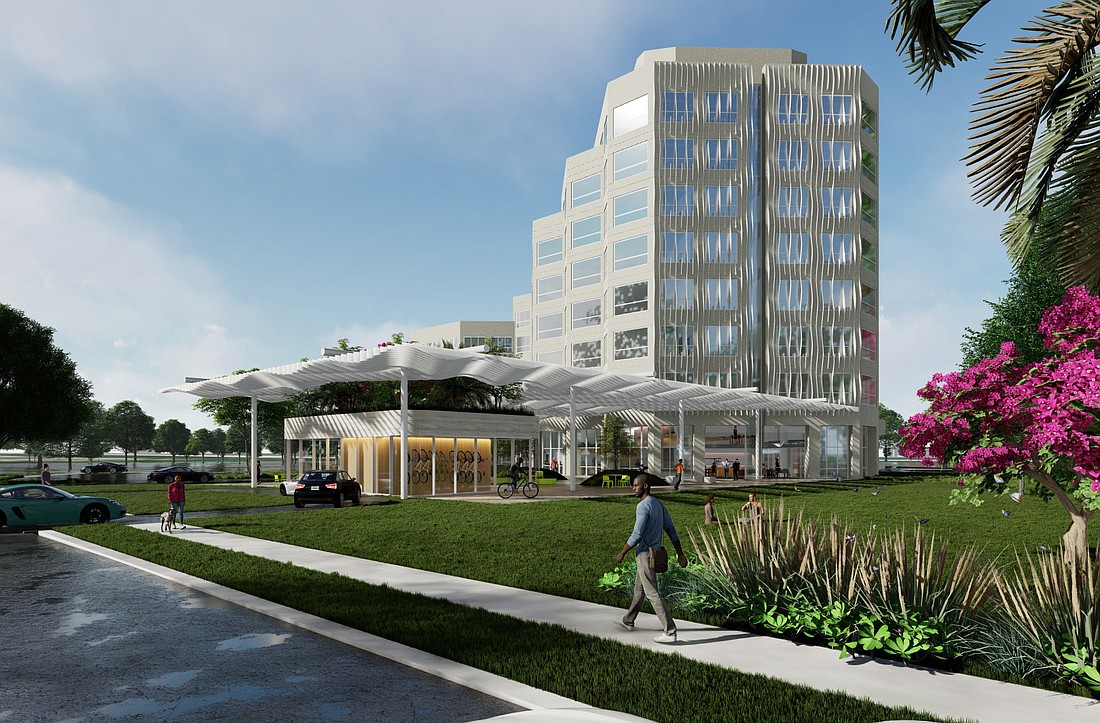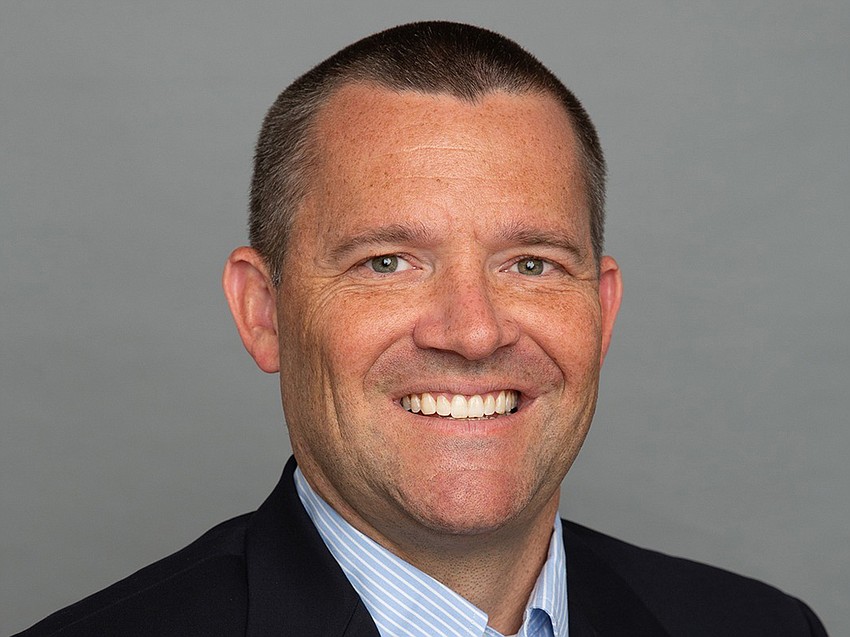
After losing a unanimous vote by the Jacksonville Planning Commission, at least 50 residents of the affluent Pablo Creek Reserve gated community and nearby neighborhoods pressed the City Council Land Use and Zoning Committee on Dec. 3 to deny a rezoning request to transform the Allstate Campus office park into residential, office and retail space rebranded as The Pondry.
This time, they came away with a victory.
After a public hearing lasting more than two hours, the committee voted 7-0 against rezoning the 30-acre campus near Butler Boulevard and San Pablo Road South from Commercial Office to Planned Unit Development. The action sends legislation containing the rezoning, Ordinance 2024-0828, to the full Council for a vote Dec. 10 with an LUZ recommendation against its passage.
“I’m going to oppose this today,” committee member Rory Diamond said before the vote. “There’s probably a resolution down the road where everybody’s comfortable. But I don’t think it’s going to happen today.”
He was correct.
The public discussion ended with disagreements over the amount of traffic the proposed development would generate, the density of the housing, whether the site contained adequate recreational space and other issues.
The vote came after 18 speakers expressed concerns that included traffic congestion and incompatibility with Pablo Creek Reserve. Thirty-two other people filled out cards signaling they opposed the rezoning but did not wish to speak.
One Pablo Creek Reserve resident spoke in favor of the project, and another person submitted a card expressing support.
With its vote, the committee rejected the recommendation of the Planning Commission, which voted 5-0 in support of the rezoning Nov. 21.

In that hearing, Planning Commission members said the housing was compatible with nearby condominiums and was an appropriate reuse of a property that like other commercial offices had been affected by work-from-home policies held over from the coronavirus pandemic.
An exhibit filed with the ordinance shows a total office area of 192,836 square feet; 250 residential units among 24 row houses, 36 town homes and 190 condos; 20,019 square feet of retail space; and surface parking along with parking on the ground floors of the residential and retail space.
Neighbors said the condominiums and town homes were out of character in the area, where the lower-density Pablo Creek Reserve contains about 280 homes on 400 acres. Home values in the gated community are as much as $4 million to $5 million.
Another concern was that the redeveloped property would create traffic at a level similar to pre-pandemic years, before remote-work policies led to increased vacancy in the offices. Neighbors said Jacksonville Sheriff’s Office deputies provided on-site traffic control daily before the pandemic.
Several used the term “too dense and too intense” to describe the redevelopment plan.
Stefano Portigliatti also cited plans for a proposed parking structure as an example of the project’s incompatibility.

“I want you to picture this,” he said, speaking to committee Chair Kevin Carrico. “You are more than 25 feet from me. Less than that distance, exactly 25 feet, would be the distance between their proposed six-seven-story garage and the end of the property. That is not a buffer, and that is the reality of the plan they’re pushing for,” he said.
“Now imagine a six-story parking garage looking right into your backyard. That’s not consistent with what exists there.”
Charlie Tomm said the project designer left out a word in describing the project as “a catalyst for transformational change in the neighborhood.”
“It would be a catastrophic transformational change for our neighborhood,” he said.

Steve Diebenow, Trevato Development Group’s land-use and governmental affairs attorney, said the developer had made significant changes to the original site plan after meeting three times with neighbors and their leadership. Trevato is the landowner and developer.
Diebenow said the developers’ alterations included removing a hotel and 10,000 square feet of retail space and replacing apartments with for-sale housing.
In addition, he said the final plan reduced daily auto trips from 7,147 to 3,274.
“The bottom line is we listened to the community,” he said. “We tried to address their concerns.”
At the hearing, the two sides remained divided on several points.
Diebenow and Paul Harden, another land-use attorney who represented the neighbors, disagreed on how housing density is calculated under city guidelines.
Diebenow said the density was based on the acreage of the entire campus. Under that calculation, the density would be less than 9 units per acre.
Harden said the only per-acre figure should be based only on the 9-acre portion of the site that contained housing. Using that amount of acreage, he said, the units-per-acre level would exceed the maximum allowed in the city’s 2045 Comprehensive Plan.
City staff said that planning guidelines based the formula on a mixed-use development’s total acreage while encouraging “clustering” of different components.
Diebenow said complaints about recreational space also were unfounded, as plans included a walking path and other areas that together exceeded city requirements.

Council member Will Lahnen, whose District 3 includes the Allstate Campus, said that regardless of which formula was used, the housing on the site would be 12 to 40 times more dense than the Pablo Creek Reserve.
Regarding road congestion, Lahnen said a traffic study conducted by Trevato showed that the redeveloped site would generate 26% more traffic on San Pablo Road South.
Lahnen said that based on those and other concerns, he opposed the rezoning.
Several committee members asked Lahnen and Harden whether neighbors would accept a lower number of residential units in the plan and, if so, what level they would prefer.

Committee member Raul Arias urged neighbors to keep talking to the developers, saying the landowner had the right to redevelop the property under its current zoning in a way that might be less attractive.
“Something’s going to go there,” he said. “Don’t think this is going to be a vacant parking lot the rest of your lives. This is where you have to compromise.”
After the vote, Diebenow said Trevato was willing to continue talking with neighbors if they were open to compromise. Harden said the vote “doesn’t mean we’re going to quit talking.”